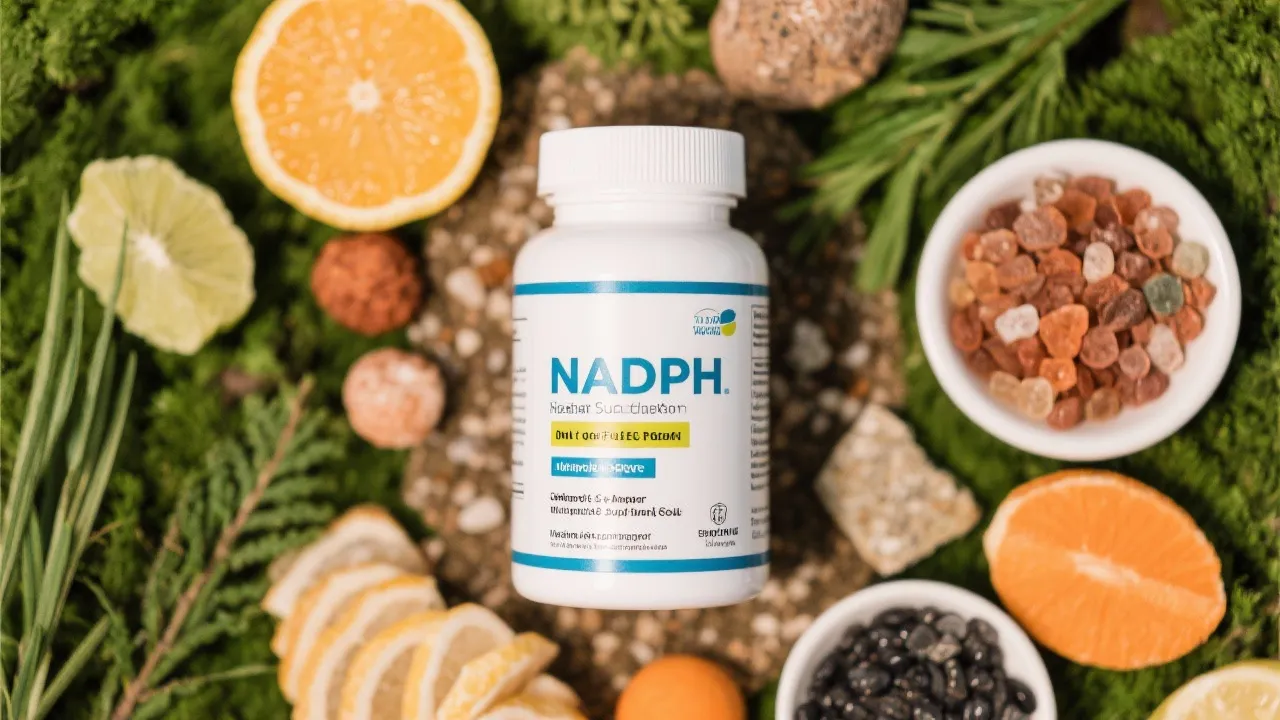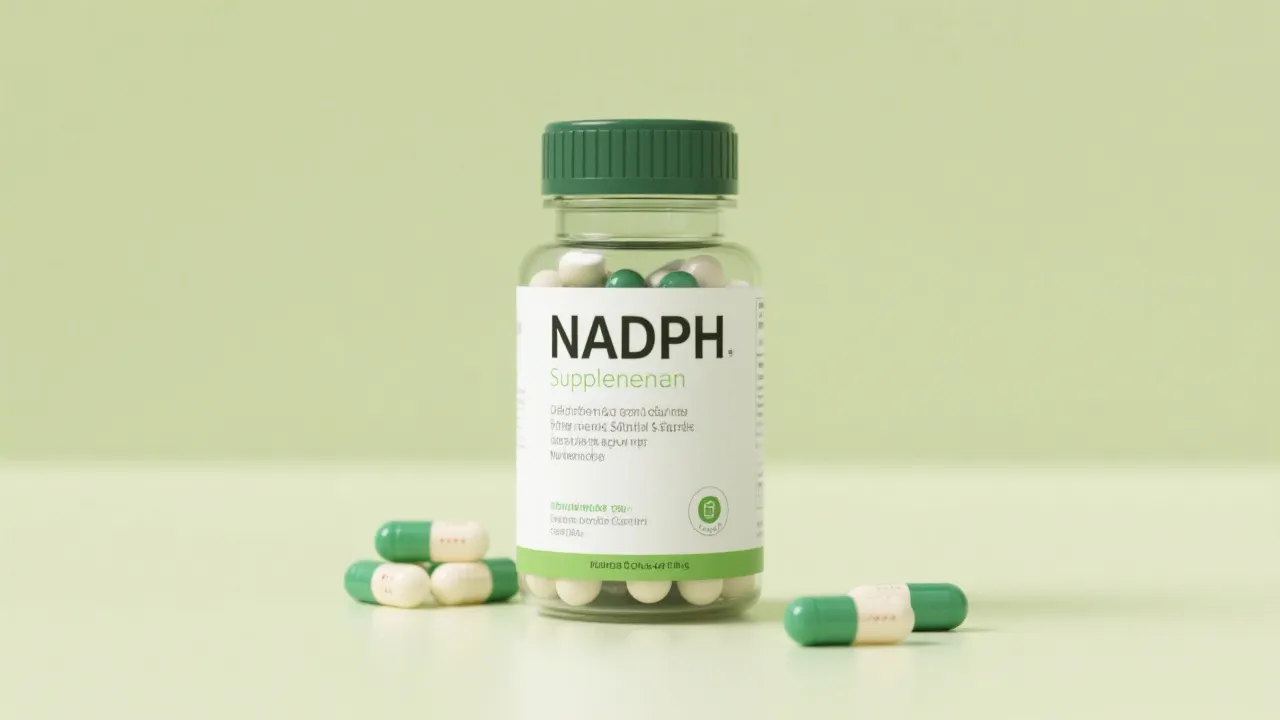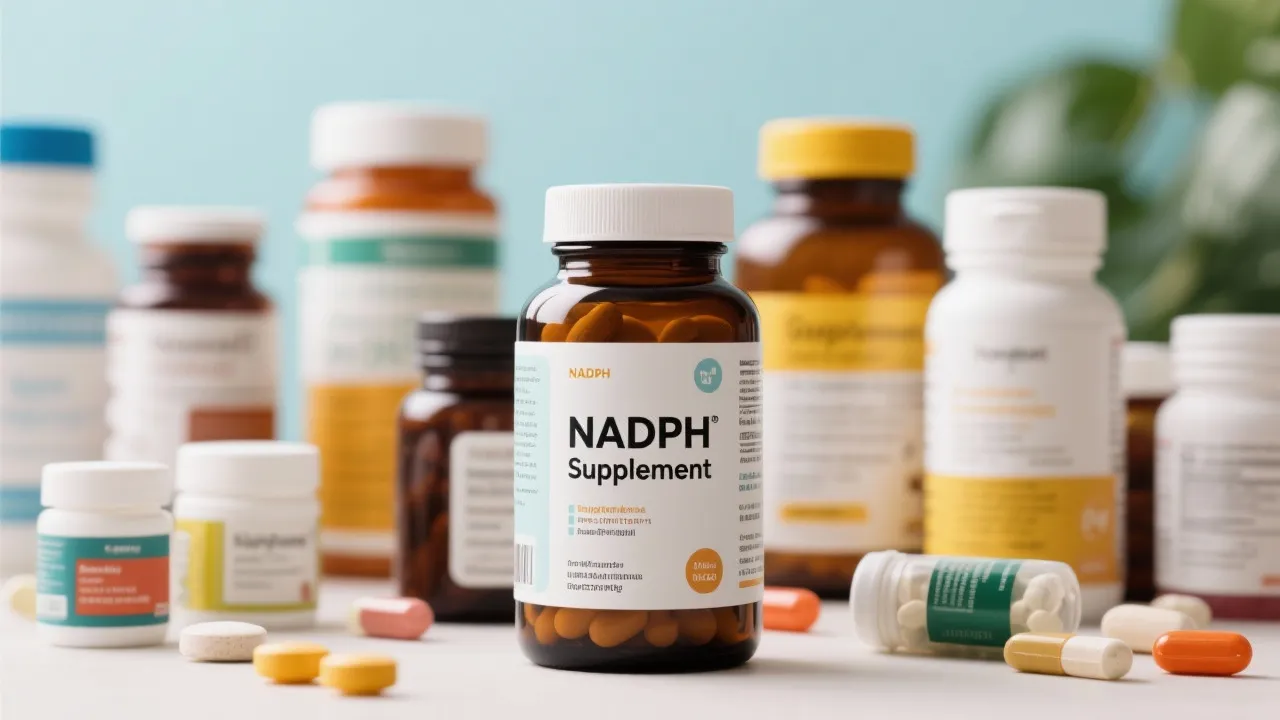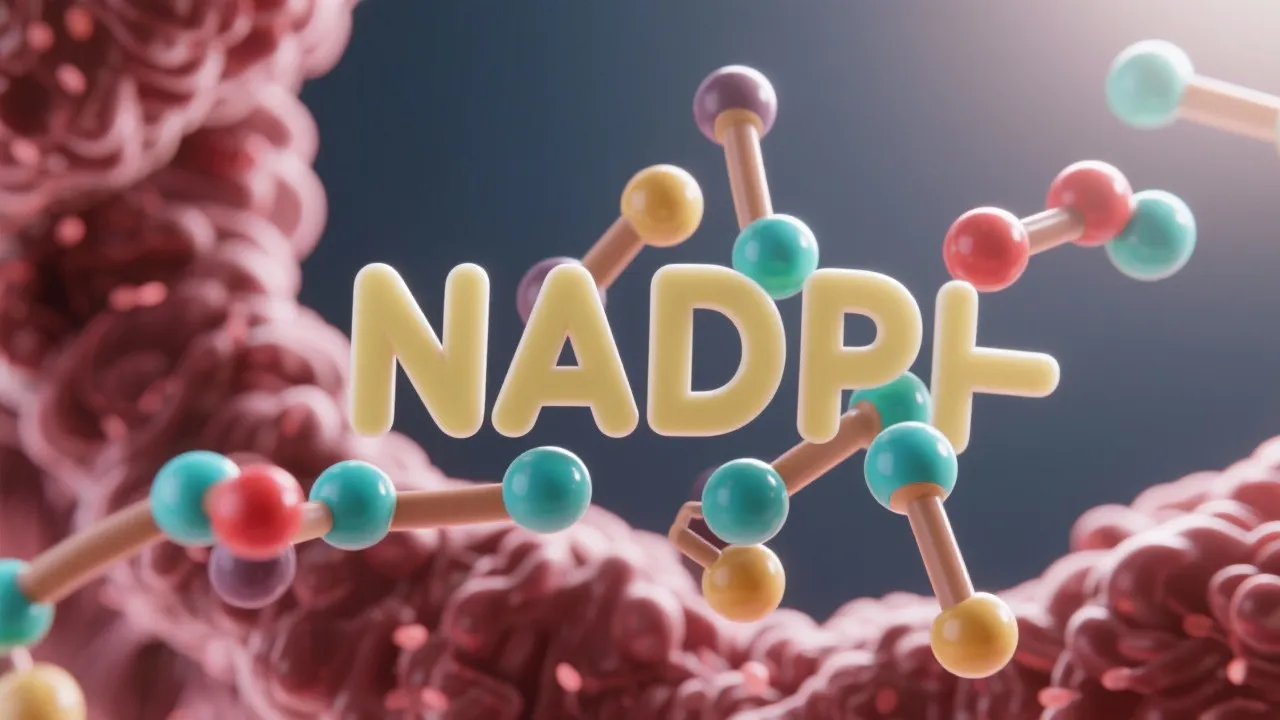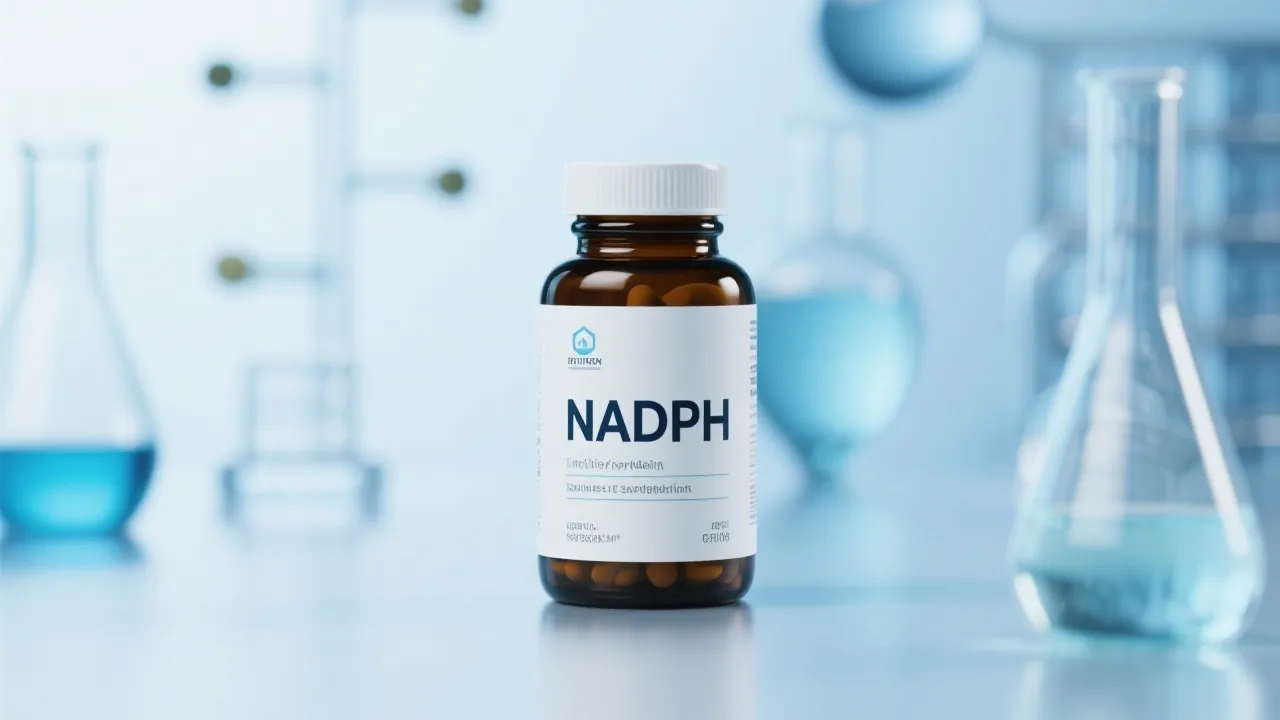Understanding NADPH Supplements
NADPH supplements are gaining attention for their potential health benefits, particularly in cellular energy and antioxidative functions. NADPH, or nicotinamide adenine dinucleotide phosphate, plays a crucial role in the body's metabolic processes, helping to protect cells from oxidative stress. This article delves into the science behind NADPH supplements, their potential advantages, and considerations for use.
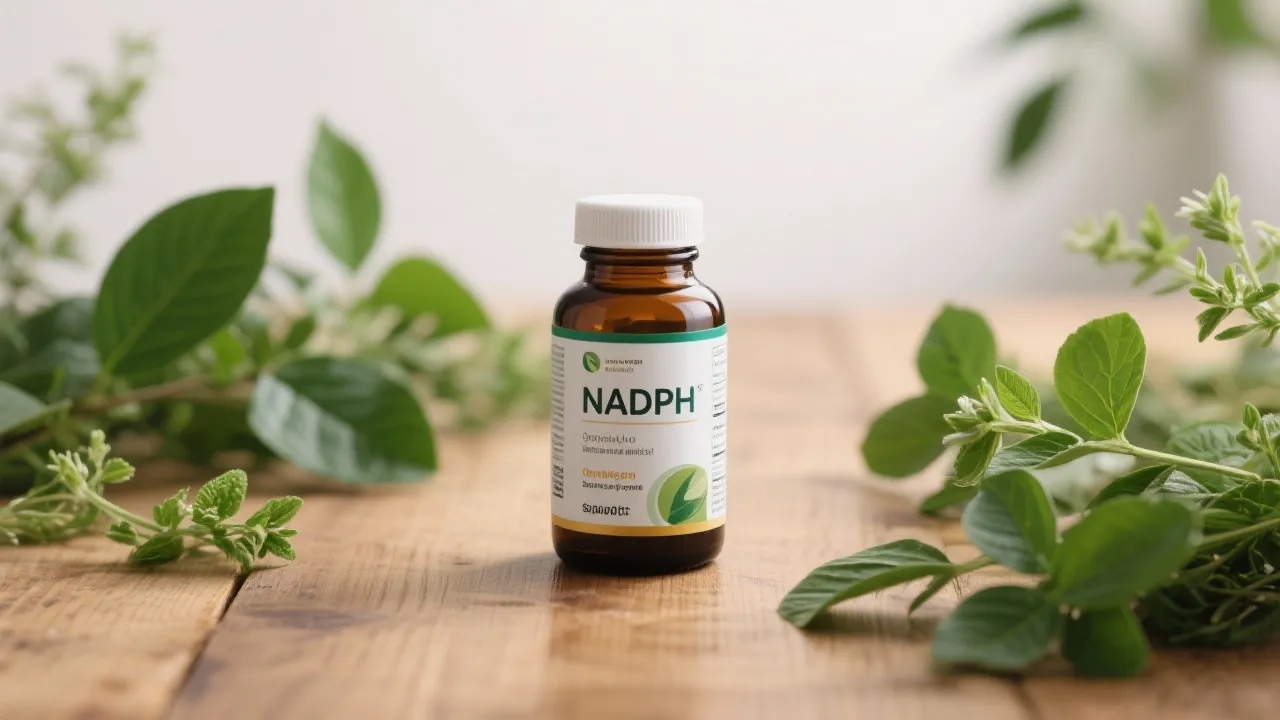
Introduction to NADPH Supplements
The exploration of supplements to boost bodily functions has always intrigued both science enthusiasts and those seeking alternative health solutions. Among this vast array of supplements, NADPH supplements have risen in prominence due to their roles in cellular metabolism and antioxidative defense mechanisms. With a growing body of research shedding light on this coenzyme's various attributes, individuals are now more focused on how NADPH can potentially enhance their overall health and well-being.
What is NADPH?
NADPH, or nicotinamide adenine dinucleotide phosphate, is a coenzyme that plays an imperative role in various biological functions. It acts primarily as a reducing agent, crucial for biosynthetic pathways, and aids in cellular defense by providing the necessary redox balance within cells. Its involvement in the pentose phosphate pathway ensures the generation of ribose sugars necessary for nucleic acid synthesis. NADPH also plays a significant role in lipid and nucleotide synthesis, serving as a source of reducing power essential for anabolic reactions.
The molecule itself comprises a nicotinamide ring, two ribose sugars, and two phosphate groups. The unique structure of NADPH allows it to participate in oxidation-reduction reactions, thereby donating electrons to various reactions in the body. This property is pivotal not just for energy production but also for maintaining the health of cells through the detoxification of reactive oxygen species (ROS).
Potential Benefits of NADPH Supplements
NADPH is fundamental to numerous cellular processes, making its adequacy vital for sustaining cellular health. People consider taking NADPH supplements to potentially enhance their antioxidative capacity, thereby aiding in reducing oxidative stress, a precursor to chronic diseases including neurodegenerative disorders and certain types of cancer.
Furthermore, the presence of adequate NADPH levels supports the function of important enzymes that are involved in the synthesis of nucleic acids and fatty acids. This can have far-reaching implications, influencing everything from cellular growth to energy metabolism. The correlation between NADPH levels and disease prevention underscores the importance of supporting our body’s natural regenerative processes as part of a holistic health regimen.
Moreover, NADPH is vital for the regeneration of glutathione, considered the body's master antioxidant. Hence, NADPH supplements can indirectly support detoxification processes and overall cellular health. The enhancement of glutathione reserves promotes improved immune function and cellular repair mechanisms, potentially fostering longevity and improved resilience against age-related decline.
Additionally, NADPH is crucial in various metabolic pathways responsible for the energy production that fuels our bodily functions. Its deficiency can hinder these pathways, affecting everything from stamina during physical activities to the overall energy balance in our daily lives. Thus, by ensuring optimal levels of NADPH, individuals may experience improvements in physical performance, cognitive clarity, and even recovery rates following strenuous activities.
Integrating NADPH in Dietary Regimens
While NADPH supplements demonstrate promising benefits, they should not be considered a cure-all. It’s essential to understand that supplements are most effective when complemented by a balanced diet and healthy lifestyle choices. Consultation with healthcare professionals is essential to tailor supplementation to individual needs, ensuring safety and efficacy. Integrating these supplements could potentially complement dietary regimens targeting longevity and improved metabolic functions.
When thinking about dietary integration, many individuals may overlook the impact that whole foods have on NADPH levels and antioxidant defense. Foods rich in antioxidants, vitamins such as B3 (niacin), and minerals like magnesium play significant roles in the body’s ability to produce NADPH. Incorporating a diverse array of fruits and vegetables, particularly those high in vitamins C and E, can create a synergistic effect that promotes the body’s antioxidative capacity.
Some studies indicate that the Mediterranean diet, characterized by high fruit, vegetable, whole grain, fish, and low red meat intake, may support NADPH levels while also reducing the risk of chronic diseases. Thus, adopting such dietary patterns not only aligns with the aims of increasing NADPH availability but also encourages a broader approach to holistic health improvement.
Comparison of NADPH Sources
| Source | Description |
|---|---|
| NADPH Supplements | Directly available in supplement form, typically as capsules or powders, allowing for precise dosage and immediate availability to the body. |
| Endogenous Production | Produced within the body primarily via the pentose phosphate pathway, which is heavily dependent on nutrient availability from diet, including carbohydrates and certain amino acids. |
| Dietary Support | Foods aiding NADPH production include fruits, vegetables, nuts, and whole grains rich in vitamins and minerals essential for cellular functions like metabolism and antioxidative processes. |
| Vitamins and Minerals | Specific vitamins, including B vitamins (especially B3), magnesium, and vitamin C, have been shown to impact NADPH synthesis and regeneration positively. |
| Exercise | Regular physical activity can enhance the body's metabolic pathways, boosting the production of NADPH and improving overall bioenergetics. |
FAQs on NADPH Supplements
Q: Who should consider taking NADPH supplements?
A: Individuals suffering from chronic fatigue or oxidative stress-related conditions may explore the potential benefits, albeit under medical guidance. Additionally, older adults or those with compromised immune systems might consider supplementation as part of a holistic approach to improve their cellular health.
Q: Are there any known side effects of NADPH supplements?
A: While generally considered safe, some individuals may experience mild digestive discomfort, or rare allergies due to specific ingredients in the formulation. It’s crucial to check labels for any fillers or additives that may trigger sensitivities. Always consult a healthcare provider for personalized advice.
Q: Can NADPH supplements be taken in conjunction with other antioxidants?
A: Yes, they are often used to complement the effects of other antioxidants like vitamins C and E. However, it is essential to manage dosages correctly to avoid overwhelming the body’s detoxification processes, which might otherwise lead to undesired effects.
Q: How soon can one expect to see the benefits?
A: Benefits can vary based on individual health conditions and the reason for supplementation. Some users may observe improvements in energy levels within a few weeks, while more substantial effects, such as immune support or enhanced recovery, may take longer to manifest.
Conclusion
As interest in NADPH supplements grows, understanding their potential role in health optimization becomes crucial. They represent a promising facet of nutritional support, particularly if tailored wisely under professional supervision. The key lies in a balanced approach that incorporates dietary considerations, exercise, and lifestyle factors to leverage the full scope of benefits NADPH supplementation may offer.
Alongside them, fostering an awareness of one’s unique health needs, symptoms, and daily challenges can lead to informed choices that promote lasting wellness. By integrating NADPH within a comprehensive health framework—including hydration, nutrition, physical activity, and mental health strategies—individuals can strive for optimized cellular function and overall health enhancement.
To mitigate the risks of oxidative stress, boost energy levels, and enhance metabolic functions, individuals should focus not only on supplements but also on cultivating a lifestyle that radiates health and vitality. It is the synergy between well-rounded nutrition, regular physical activity, and strategic supplementation that creates a powerful arsenal against age-related decline and chronic diseases. As research advances, further insights into the role of NADPH in human health will likely emerge, thereby guiding individuals towards their personal health optimization journeys.
